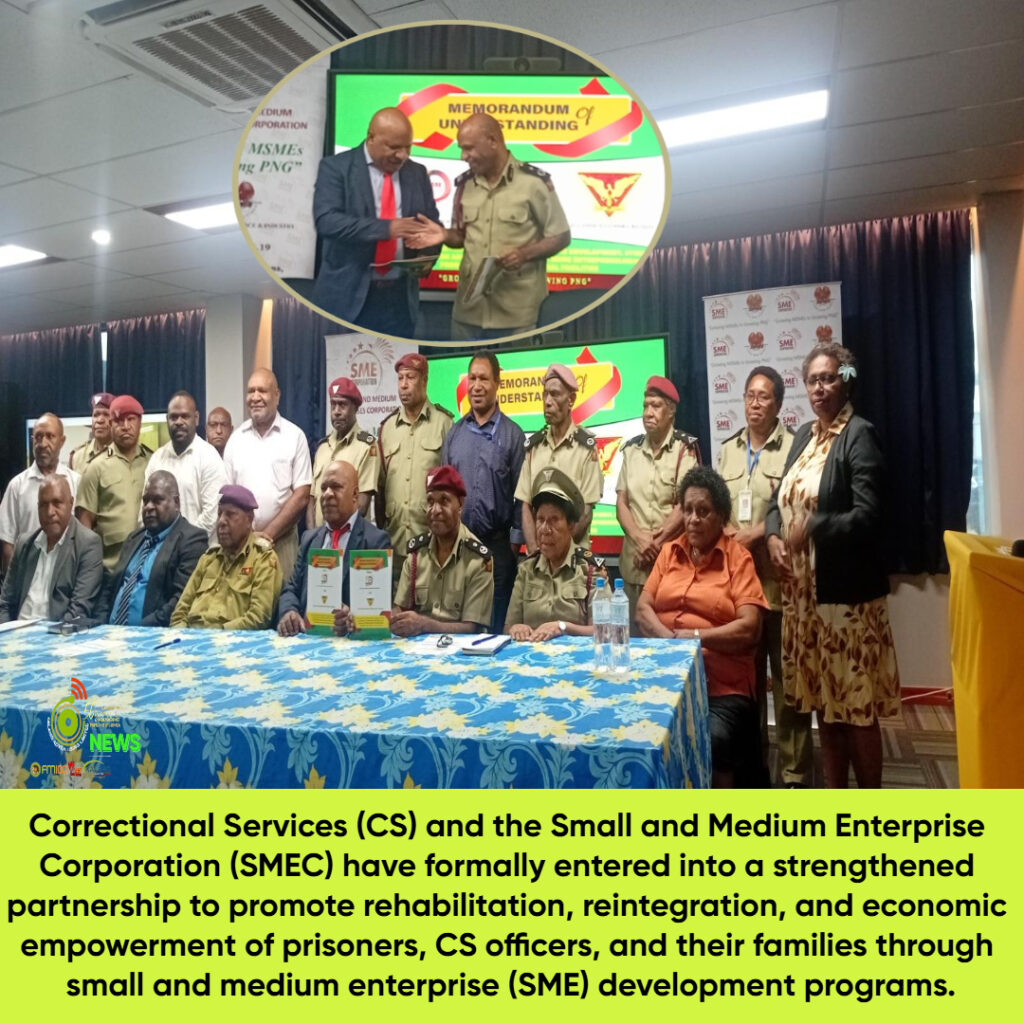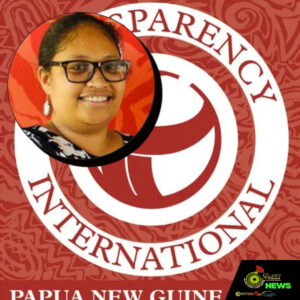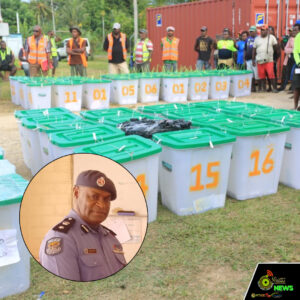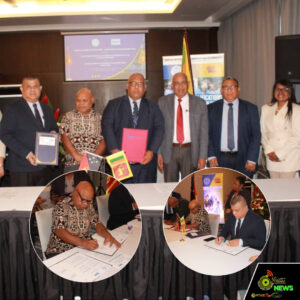CS & SMEC PARTNER TO EMPOWER PRISONERS AND STAFF THROUGH SME TRAININGS

By Sandra ULG
THE Correctional Services (CS) and the Small and Medium Enterprise Corporation (SMEC) have formally entered into a strengthened partnership to promote rehabilitation, reintegration, and economic empowerment of prisoners, CS officers, and their families through small and medium enterprise (SME) development programs.
The partnership was sealed through the signing of a Memorandum of Understanding (MOU) today in Port Moresby, signaling a new chapter in correctional rehabilitation and sustainable livelihood training.
Speaking at the official signing and recognition ceremony, CS Acting Commissioner Bernard Nepo emphasized that the partnership signifies a shift towards structured and impactful rehabilitation strategies.
He acknowledged the positive contributions of the SMEC team, stating that their collaboration offers an opportunity to add value to the lives of those classified as outcasts and contribute meaningfully to national development.
He says this partnership is very important to them because it supports their rehabilitation initiative. Instead of just locking people away, they are now giving them life skills, knowledge and mindset change so that when they return to their communities, they can rebuild their lives.
SMEC Managing Director Mr. Petrus Ralda echoed the same sentiments, highlighting the strategic importance of SME development in achieving inclusive economic growth.
He explained that most government policies and plans often fail due to fragmented implementation and lack of coordination across different sectors and administrative levels.
The MD outlined SMEC’s inclusive approach, which targets three groups: prisoners, CS officers, and their spouses and families. The aim is to equip each group with entrepreneurial skills so they can transition into independent livelihoods, especially as part of an exit strategy for public servants nearing retirement.
He says the prisoners, CS staff, and their families are part of the broader PNG community and must be included in the development process.
He adds that they are here to empower prisoners and assist them identify their skills, provide training, and help them become productive citizens who can also contribute to the economy.





